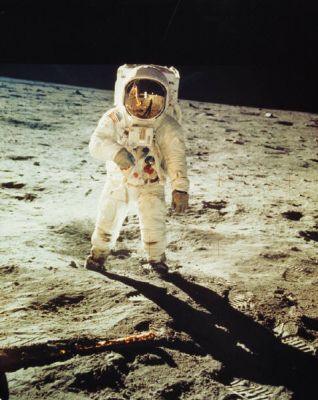
The new year is upon us: first step--according to the Gregorian calendar, anyway--of our next long loop around the sun. Time to look back over some of the most interesting Foundational stories from the previous trip.
Here, in no order, are five which caught my eye. Feel free to add your own.
Number one:
If the LHC has finally produced a Higgs boson, will a Higgs singlet be seen jumping backward in time?
"One of the major goals of the collider is to find the elusive Higgs boson: the particle that physicists invoke to explain why particles like protons, neutrons and electrons have mass. If the collider succeeds in producing the Higgs boson, some scientists predict that it will create a second particle, called the Higgs singlet, at the same time.
"According to Weiler and Ho's theory, these singlets should have the ability to jump into an extra, fifth dimension where they can move either forward or backward in time and reappear in the future or past.
"One of the attractive things about this approach to time travel is that it avoids all the big paradoxes," Weiler said. "Because time travel is limited to these special particles, it is not possible for a man to travel back in time and murder one of his parents before he himself is born, for example. However, if scientists could control the production of Higgs singlets, they might be able to send messages to the past or future."
Pet Peeve: Writing popular science, one becomes rapidly fatigued by seeing the grandfather paradox used to explain the logical problems with retrograde temporal motion. Not only is it a big yawn, there are several more interesting paradoxes out there. One, nicely touched on by FQXi member Brian Greene in his book "The Fabric of the Cosmos," (recently televised, btw, and including interviews with Max) is a time-traveler's evident ability to generate information ex nihilo.
In cartoonish form, imagine jumping forward in time, looking up a few articles in Physical Review that have your name in the byline, jumping back with copies of the articles, transcribing, and submitting them. Where did the information contained in the articles--information about how nature actually works--come from? No logical laws have been broken in this scenario: you wrote the articles; you read over your work; you just did these two things in reverse order. But, somehow, objective knowledge has been created here without any "access point."
Given the importance of information itself to contemporary, physics-based ontologies, this kind of "information paradox" may be much more apposite than one more dead grandfather.
Two:
"'The key message of my paper is that dark matter may not exist and that phenomena attributed to dark matter may be explained by the gravitational polarization of the quantum vacuum,' Hajdukovic told PhysOrg.com. 'The future experiments and observations will reveal if my results are only (surprising) numerical coincidences or an embryo of a new scientific revolution.'
"Like his previous study about a cyclic universe successively dominated by matter and antimatter, Hajdukovic's paper on a dark matter alternative is also an attempt to understand cosmological phenomena without assuming the existence of unknown forms of matter and energy, or of unknown mechanisms for inflation and matter-antimatter asymmetry. In the case of the fast rotational curves of galaxies, he explains that there are currently two schools of understanding the phenomenon.
"'The first school invokes the existence of dark matter, while the second school invokes modification of our law of gravity,' he said. 'I suggest a third way, without introducing dark matter and without modification of the law of gravity.'"

Readers of this blog know I am something of a dark matter skeptic myself--and a string skeptic, actually--though I wouldn't go so far as to bet against either (skeptic, not denier). Still, we've talked before here about how dark matter is an absolutely ginormous revision to the very idea of what the cosmos is made of, based, largely, on what could equally well be a mistake over gravitation. "Dark" is certainly one way to explain rotational speeds, and gravitational lensing, but there are others--others that, as odd as they may be, don't require us to assume that some 96% percent of the universe has never even been glimpsed.
That said, if there is any place on the web where "ginormous revisions" of our basic scientific views will find a rational audience, it's FQXi.
Speaking of which . . .
"It is a concept that forms a cornerstone of our understanding of the universe and the concept of time - nothing can travel faster than the speed of light.
"But now it seems that researchers working in one of the world's largest physics laboratories, under a mountain in central Italy, have recorded particles travelling at a speed that is supposedly forbidden by Einstein's theory of special relativity.
"Scientists at the Gran Sasso facility will unveil evidence on Friday that raises the troubling possibility of a way to send information back in time, blurring the line between past and present and wreaking havoc with the fundamental principle of cause and effect."
My money says 'no' on this one. The apparent violation--sixty billionths of a second--is still within the possibility of experimental error. Of course, if anything is going to be seen doing paradigm-splitting weirdness, it's a neutrino. Could neutrinos briefly hop into another dimension, shortening their overall trip while not exceeding the local speed limit? Could they temporarily convert into tachyons . . . some kind of superluminal neutrino decay?
Four.
Are universal constants actually constant? And, are they universal?

"A cherished principle in science - the constancy of physics - may not be true, according to the research carried out at the University of New South Wales, Swinburne University of Technology and the University of Cambridge.
"The study found that one of the four fundamental forces, electromagnetism - measured by the so-called fine-structure constant and denoted by the symbol alpha - seems to vary across the Universe."
One thing that is constant is the questioning of constancy, and it remains, for me at least, universally intriguing.
Number Five is not technically Foundational, but should be of interest to anyone invested in our ongoing quest to become a space-faring species--as well as the ambiguous feelings that come along with commercialization of that impulse:
"Spurred by a $30 million purse put up by Google, 29 teams have signed up for a competition to become the first private venture to land on the Moon. Most of them are unlikely to overcome the financial and technical challenges to meet the contest deadline of December 2015, but several teams think they have a good shot to win -- and to take an early lead in a race to take commercial advantage of our celestial neighbor."
On that note, just after the turn of last new year, NASA released some images that led to my favorite science news headline of the year: "Hubble Telescope Zeroes in on Green Blob in Space." (Contenders include "Giant Space Blob Glows From Within" and the ever-popular "Is there a ring of debris around Uranus?") The green blob story also gave rise to my currently favorite single line:
"The Hubble Space Telescope got its first peek at a mysterious giant green blob in outer space and found that it's strangely alive."
A living, galaxy-sized green blob named "Hanny's Voorwerp"? The late Douglas Adams would have been proud.
